Music Students Have Advanced Reading Skills
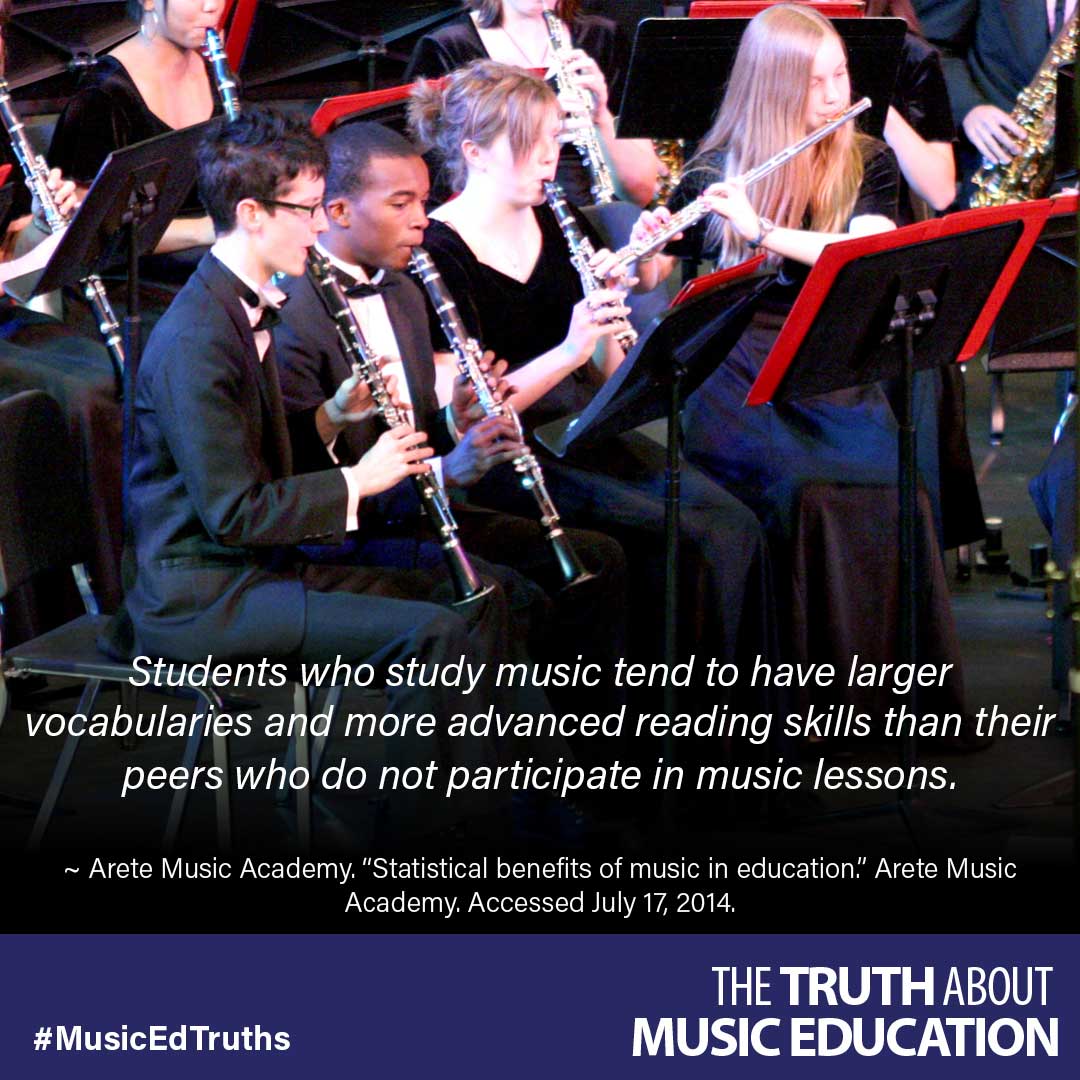
Students who study music tend to have larger vocabularies and more advanced reading skills than their peers who do not participate in music lessons.

Students who study music tend to have larger vocabularies and more advanced reading skills than their peers who do not participate in music lessons.
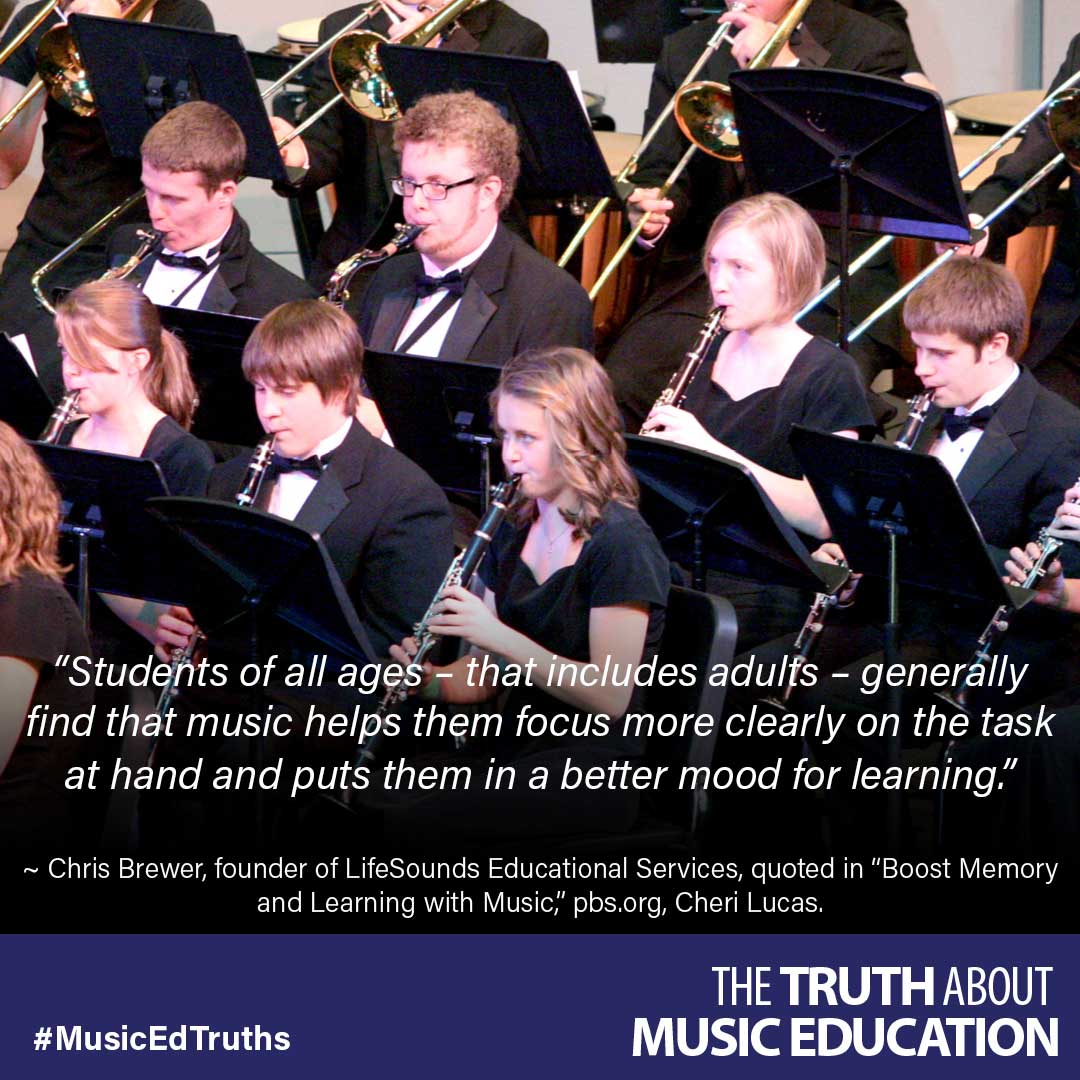
“Students of all ages – that includes adults – generally find that music helps them focus more clearly on the task at hand and puts them in a better mood for learning.”
The latest staff spotlight is with Nickey Hubert. Nickey has been with us about 14 years and works as a programmer and in IT support. She has a huge love for music and is a parent of a new band director! Please watch to learn more about her.
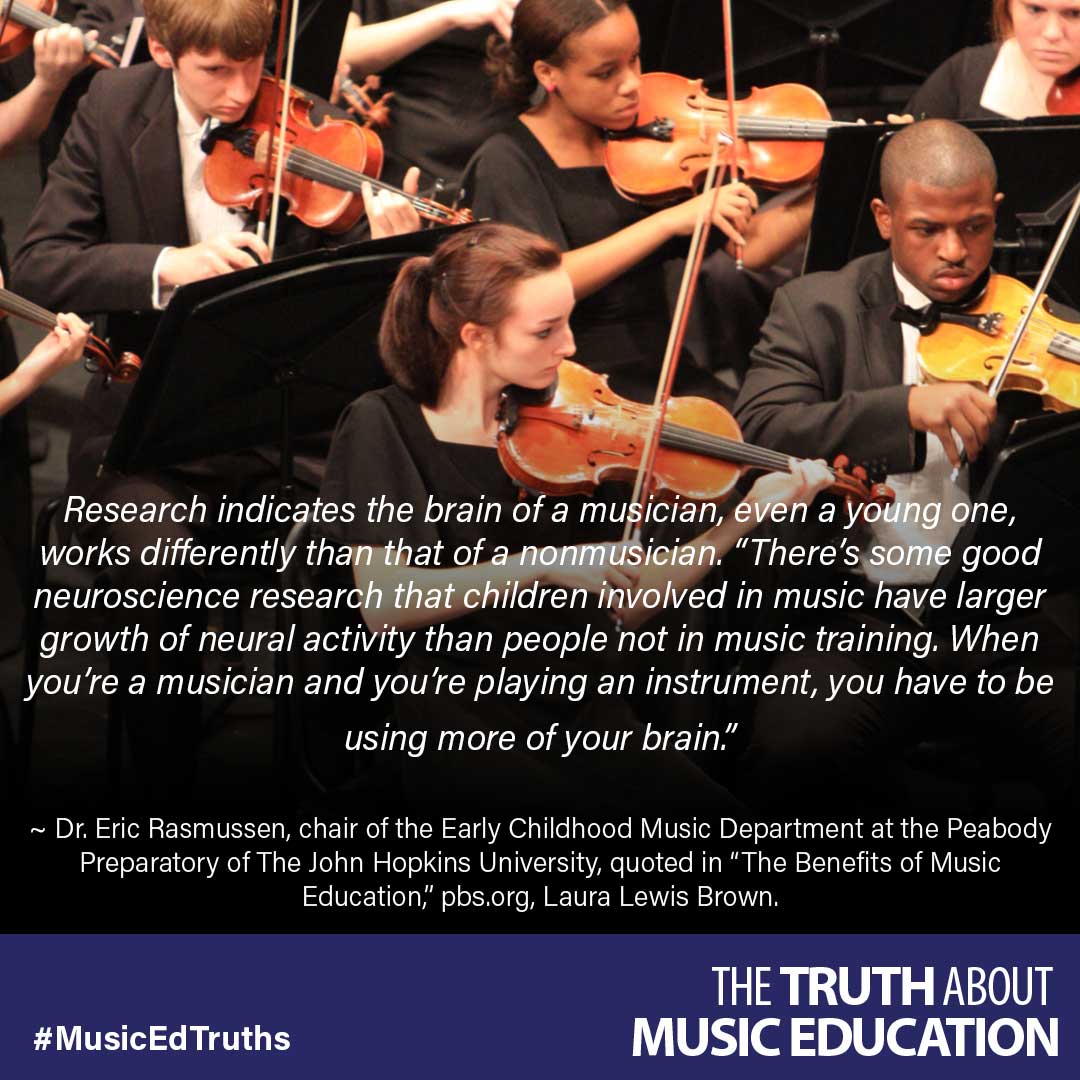
Research indicates the brain of a musician, even a young one, works differently than that of a nonmusician. “There’s some good neuroscience research that children involved in music have larger growth of neural activity than people not in music training. When you’re a musician and you’re playing an instrument, you have to be using more of your brain.”
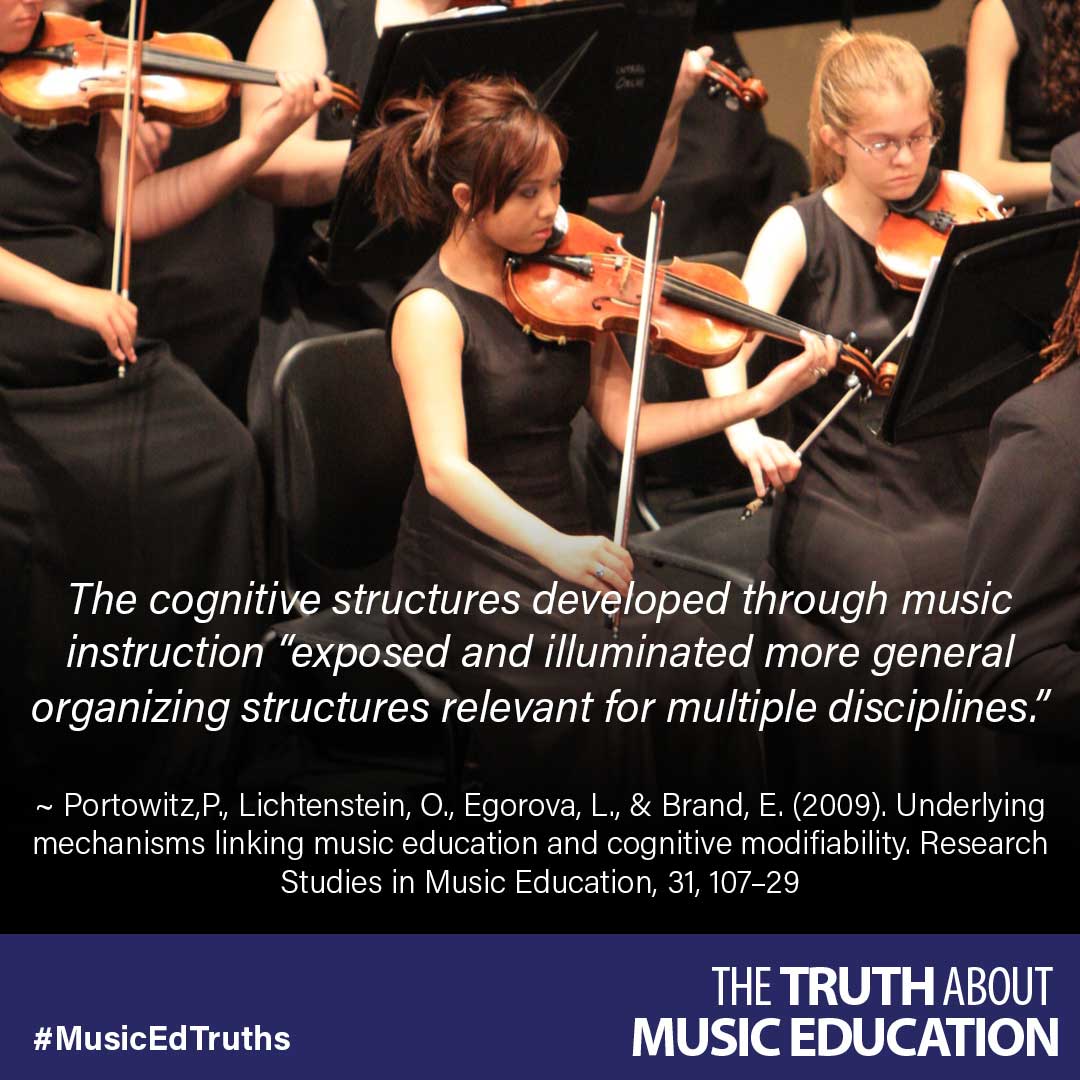
The cognitive structures developed through music instruction “exposed and illuminated more general organizing structures relevant for multiple disciplines.
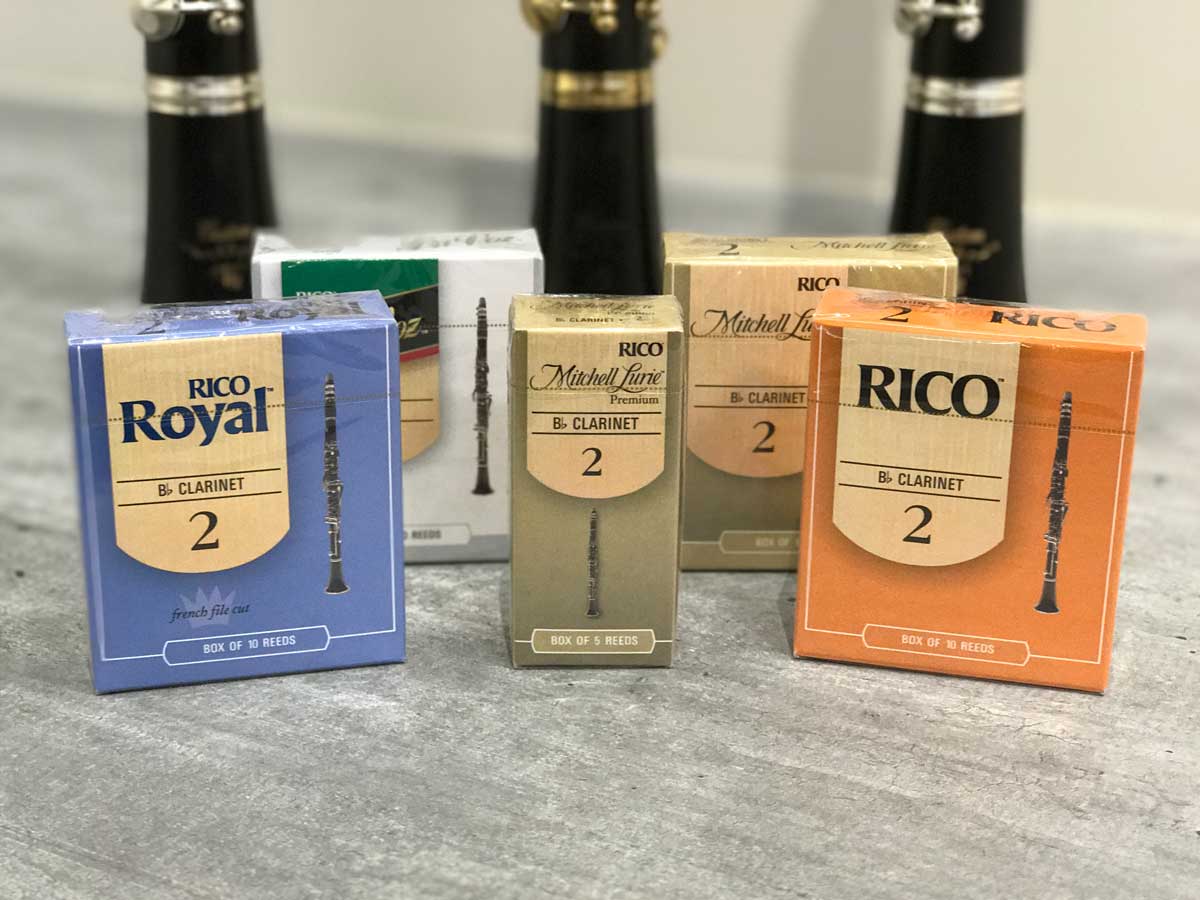
Rico by D’Addario
Rico by D’Addario reeds are unfiled and feature a thinner profile and blank. Designed for ease of response, they are ideal for students, revered by educators worldwide, and are a favorite among jazz musicians. D’Addario’s state-of-the-art machinery and reed-making process have resulted in unprecedented consistency in today’s Rico reed.
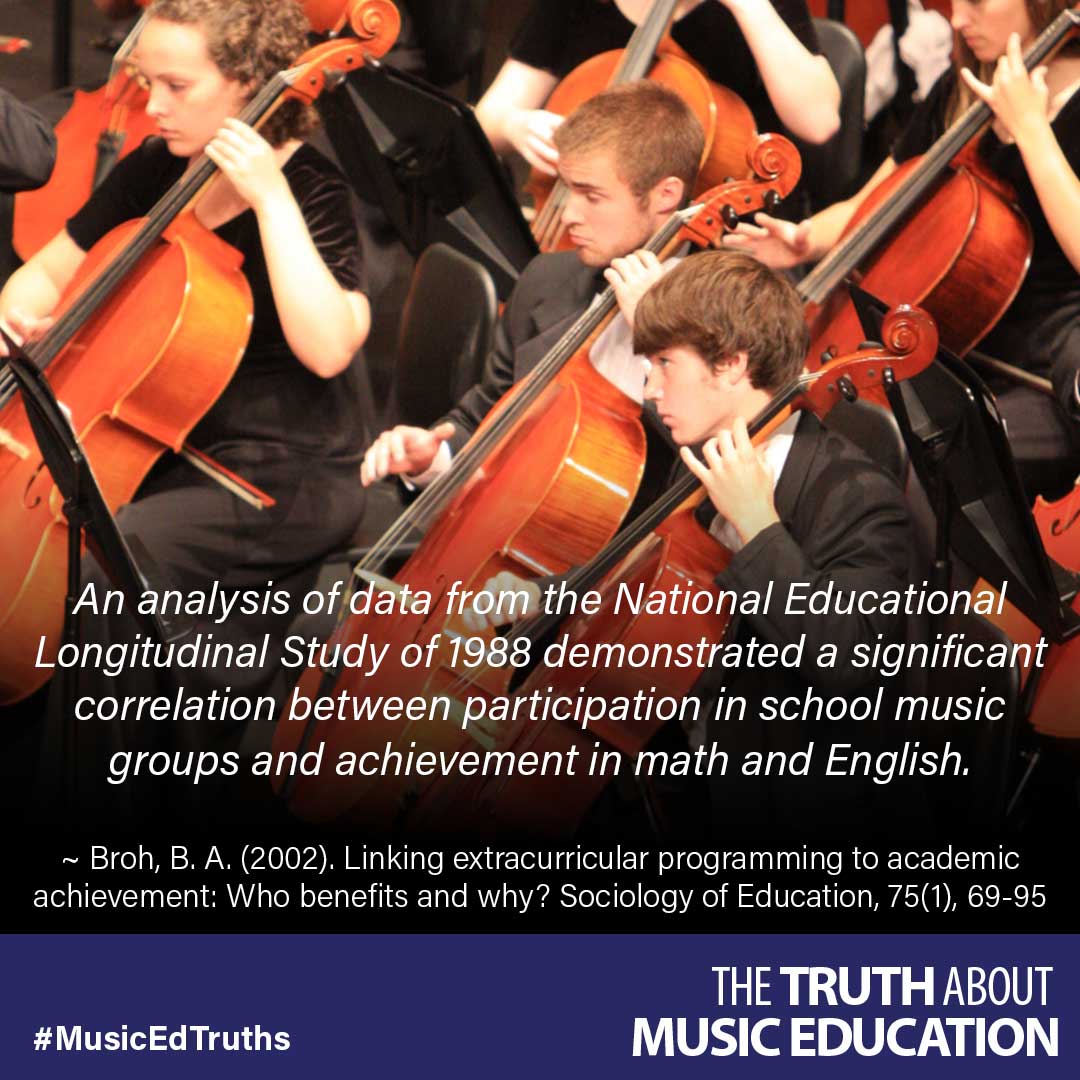
An analysis of data from the National Educational Longitudinal Study of 1988 demonstrated a significant correlation between participation in school music groups and achievement in math and English.
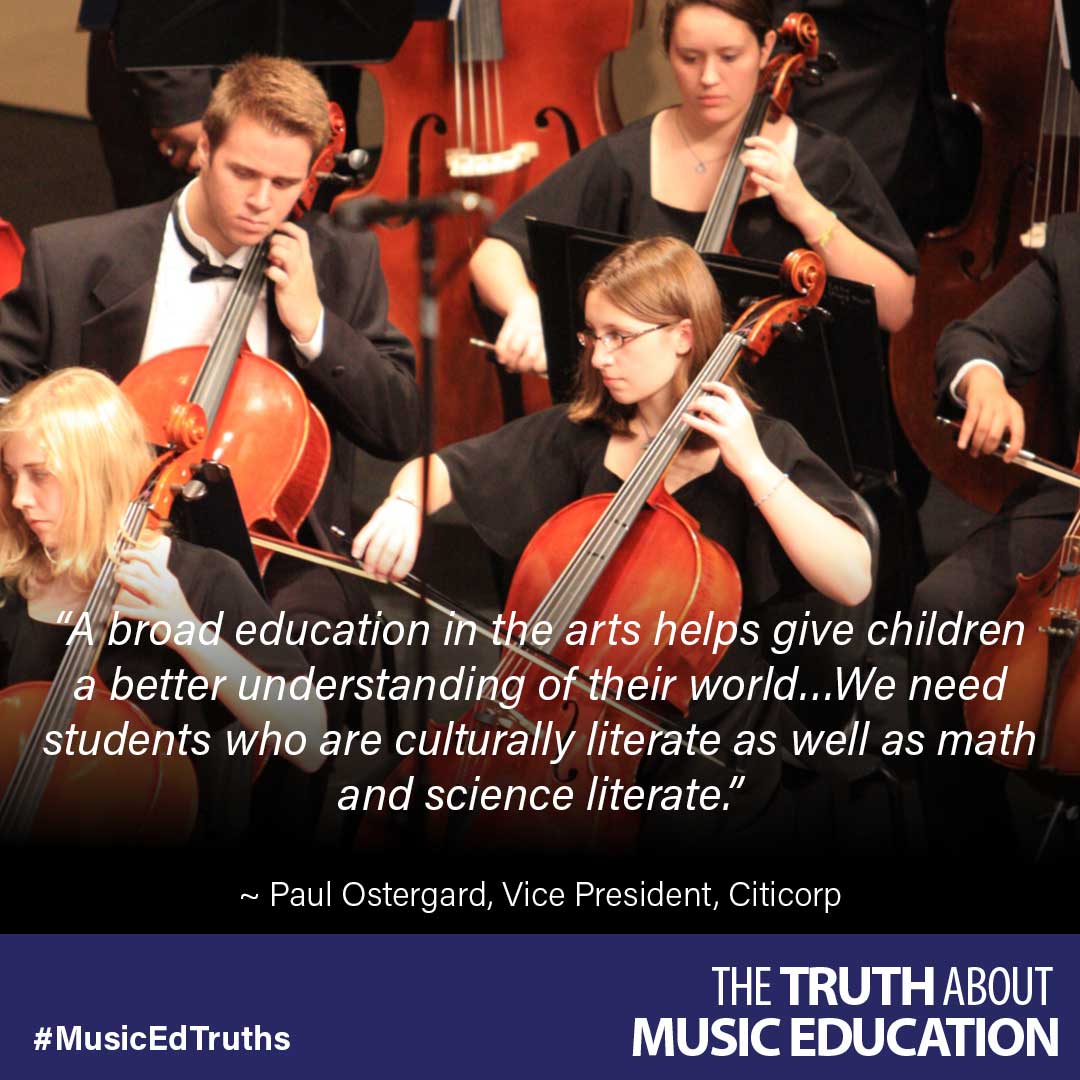
“A broad education in the arts helps give children a better understanding of their world…We need students who are culturally literate as well as math and science literate.”